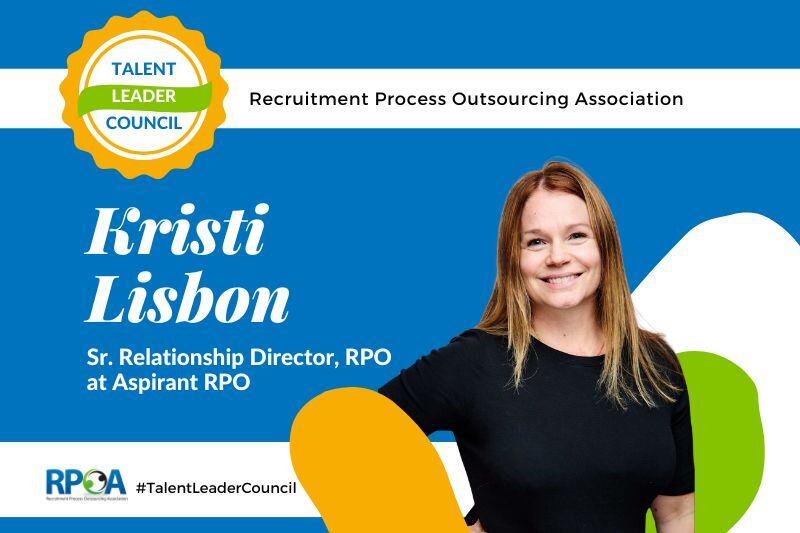
Fall is here, which means it's marketing budget season. Since the pandemic, marketing budgets have decreased from 11 to 9 percent of total revenue. Marketing budgets are crucial to a company's success. Marketing goes beyond brand visibility and directly influences growth—particularly in the talent industry. A reduced marketing budget increases the pressure on Chief Marketing Officers (CMOs) to deliver results with fewer resources. Executive leadership must involve marketing leaders in budgetary conversations early in the process. Therefore, to have those conversations, marketers need to start assessing the current year now to prepare for the upcoming year.
RPOA Executive Director Lamees Abourahma recently hosted an RPO Leadership Forum webinar with Allison Richmond, SVP of Marketing Services, and Lori Blandford, VP of Client Marketing at ClearEdge Marketing. Richmond and Blandford talked about how to build a smart and thoughtful marketing budget that will produce a business case for your marketing plans and deliver performance in the upcoming new year. Below is a recap of their presentation.
Starting the Marketing Budget Process
Richmond shared that the marketing budget process starts by looking at revenue targets because aligning your marketing efforts with broader business goals will provide essential insights. To understand those broader goals, she noted that you'll need to talk to your finance teams, the CEO/President, and other visionary leaders of the company to understand what's driving those revenue targets and then use those conversations as the foundation of your strategy.
Once you understand the why of the revenue targets, she recommended talking with the sales team so that everyone understands the revenue goals, business vision, and sales strategies. As a marketer, you must ask questions and lead the conversation to ensure alignment between sales and marketing to prepare to build your budget and priorities for the year ahead.
An important step in preparing to build your budget is analyzing past performance. Blandford highlighted the significance of looking back at past marketing campaign performances, metrics, and data. During the look back, assess successful campaigns of the current year and determine how to replicate that success in the following year. Also, look at tools and campaigns that didn't work this year. She also noted that now is the time to review and update the ideal customer profile (ICP) to ensure it aligns with current business objectives and growth plans.
Watch the webinar to create a successful marketing budget for the upcoming year.
Structuring Your Marketing Budget
With the information gathered, you can now create a marketing budget based on business expectations and goals. Richmond emphasized structuring the marketing budget to meet growth goals and demonstrate anticipated results. Apply familiar and new marketing tactics to drive revenue and build the brand. She pointed out that if you pitch a new program, ensure you've researched to make a solid case to move it forward. "It's an important time to tell the story of the numbers and the research supporting your new idea," she said.
Budgeting Pitfalls to Avoid
The discussion moved on to looking at three marketing budget pitfalls to avoid. The three pitfalls to avoid include unclear expense categories, ad hoc item handling, and overlooking paid ad spend. Blandford emphasized the importance of understanding what falls under the marketing budget because there are always some gray areas. Examples of gray areas may include client entertainment, business development, and expenses. She recommended defining these beforehand to avoid surprises.
Next, she said, "Determine how ad hoc items will be handled throughout the year. So inevitably, some priorities are going to shift and some new needs may arise. How will those be handled and accommodated in the marketing budget."
The final pitfall to avoid is overlooking the paid ad spend. Blandford advised anticipating that paid ad costs will increase yearly, and you only know the ad spend once those campaigns are in place. She said marketers should plan budgets thoughtfully and account for paid ad spend.
When Marketing Budget Allocation is Lower Than Expected
Stay flexible, and don't give up if your programs don't fit your budget.
When the budget allocated is lower than you expected, Richmond suggested resetting expectations and realigning them with business goals. She added that you should focus on 1 to 3 key goals everyone can unite around. And make sure tactics are connected back to goals to maximize budget dollars and time.
Before answering questions from the webinar attendees, Richmond concluded the presentation by saying, "The biggest takeaway is to build that story. Don't be afraid to try something new aligned with the business and keep pushing forward with clear expectations on what's possible with the budget you've been given." As you continue to evaluate and prioritize your marketing budget for the new year, we encourage you to watch the webinar to create a strategic marketing budget that yields real results for your business in the new year.














